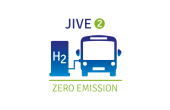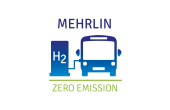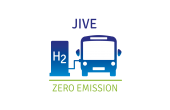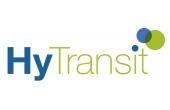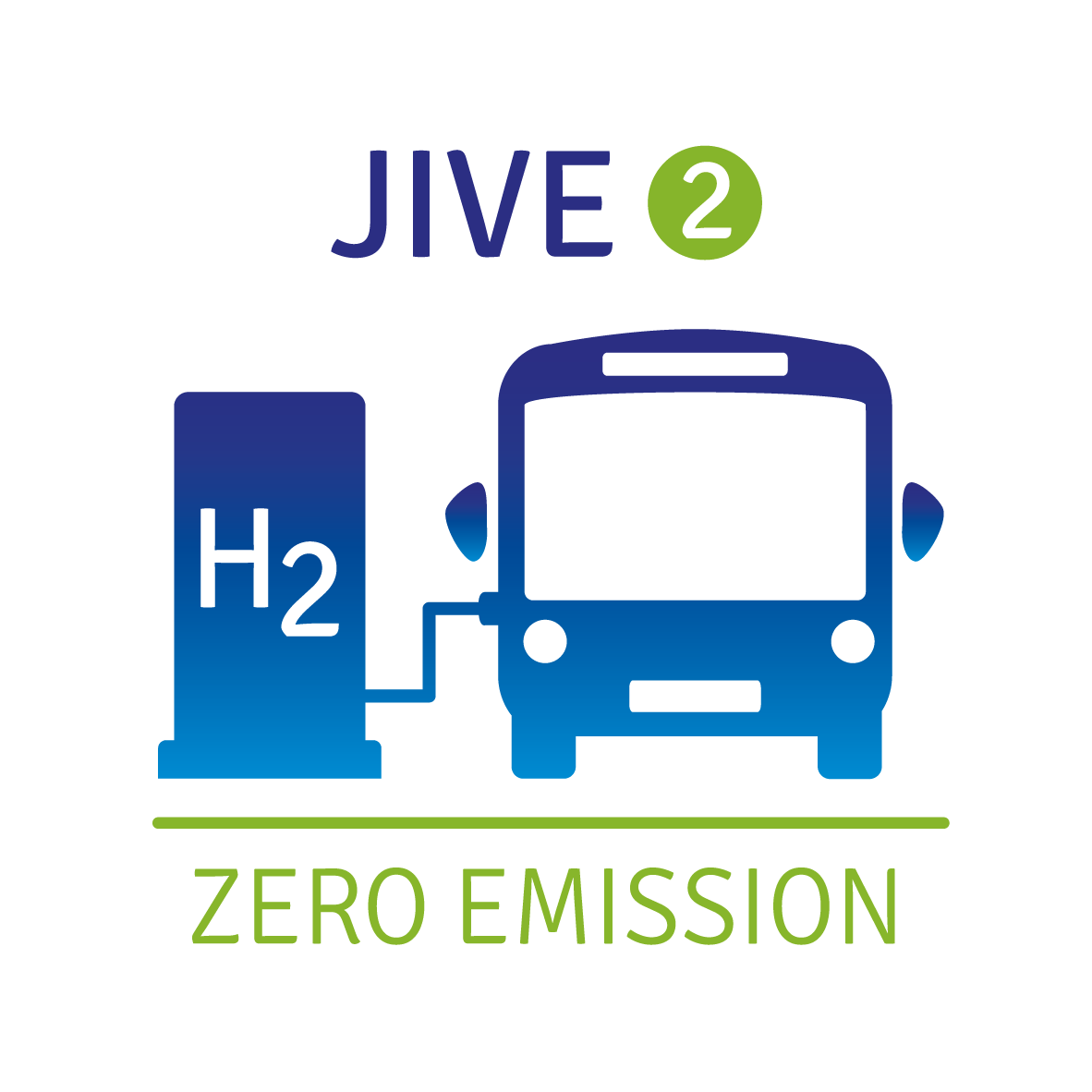
PRESS RELEASE - Brussels, 25 th January 2018
The fuel cell bus sector in Europe has this week received a tremendous boost with the launch of the JIVE 2 project (Second Joint Initiative for hydrogen Vehicles across Europe).
Coordinated by Element Energy, and supported by a €25m grant from the Fuel Cells and Hydrogen Joint Undertaking (FCH JU), the JIVE 2 project will deploy 152 fuel cell electric buses across 14 European cities throughout France, Germany, Iceland, Norway, Sweden, the Netherlands and the UK. This will expand the network of cities trialling fuel cell buses in Europe, demonstrating a growing appetite for the technology.
For most of these cities, this will be the first venture into fuel cell bus operation and they will be supported in their endeavour by a number of seasoned industry experts as well as industry grouping Hydrogen Europe.
The collaborative project is an expansion of the JIVE initiative which is now entering its second year of activity. Combined, the JIVE projects will deploy nearly 300 fuel cell buses in 22 cities across Europe by the early 2020s – the largest deployment in Europe to date.
Stricter air quality regulations being introduced by some cities and municipalities will see current diesel buses banned from many city centres over the next few years. Fuel cell electric buses represent a viable alternative for public transport authorities, offering the same operational flexibility as diesel buses but without the harmful tailpipe emissions. By the end of the project, JIVE 2 aims to prove the operational capacity of fuel cell buses and to lay the foundations for uptake on a large scale.
This will involve addressing a number of barriers currently preventing widespread uptake, including reducing vehicle ownership costs, increasing the variety of models available and establishing continent-wide low-cost, reliable sources of renewable hydrogen fuel.
The increased scale of deployment through the JIVE initiatives creates the conditions for accelerated development of European bus manufacturers’ production capabilities by the early 2020s. This will enable them to achieve the economies of scale needed for mass roll out of fuel cell buses, positioning this technology to become a key zero emission public transport alternative in the coming years.
Ben Madden, Director of Element Energy – “We are delighted to be able to expand the JIVE initiative through the launch of the JIVE 2 project. This project represents another step towards fuel cell buses becoming mainstream technology across Europe and being able to achieve the economies of scale needed for commercialisation. We are now starting to see manufacturers using the momentum created by the JIVE initiative to develop new designs and then offer these buses at a commercially viable price. This is a significant turning point both for the future success of the technology and the decarbonisation of Europe’s public transport networks.”
Bart Biebuyck, FCH JU Executive Director – “The FCH JU is proud to launch its new project JIVE 2. With this collaborative approach, JIVE 2 will not only address cities’ pressing environmental challenges, air quality and noise pollution; it will also allow European industry to test and further improve their products, generate high qualified employment and foster further research in this technology. Thanks to FCH JU projects such as JIVE and JIVE 2, we are proud to keep Europe in the leadership of this innovative technology.”
Background Information:
About the JIVE 2 project: The JIVE 2 project (Second Joint Initiative for hydrogen Vehicles across Europe) is a Fuel Cell and Hydrogen Joint Undertaking (FCH JU) grant funded (€25M) project deploying 152 zero emission fuel cell buses across seven member states. The project will run for six years from January 2018. The project is co-financed by the FCH 2 JU under the European Union - Horizon 2020 framework programme for research and innovation under the project number 779563.
About the FCH JU: The Fuel Cells and Hydrogen Joint Undertaking (FCH JU) is a unique public private partnership supporting research, technological development and demonstration (RTD) activities in fuel cell and hydrogen energy technologies in Europe. Its aim is to accelerate the market introduction of these technologies, realising their potential as an instrument in achieving a carbon-lean energy system. The three members of the FCH JU are the European Commission, fuel cell and hydrogen industries represented by Hydrogen Europe and the research community represented by the research grouping Hydrogen Europe Research. Website: http://www.fch.europa.eu/
About Element Energy: Element Energy Limited is a leading low carbon energy consultancy, with expertise in the initiation & coordination of large scale demonstration projects. Element Energy Ltd is coordinating the JIVE and JIVE 2 projects. Website: http://www.element-energy.co.uk
-END-

